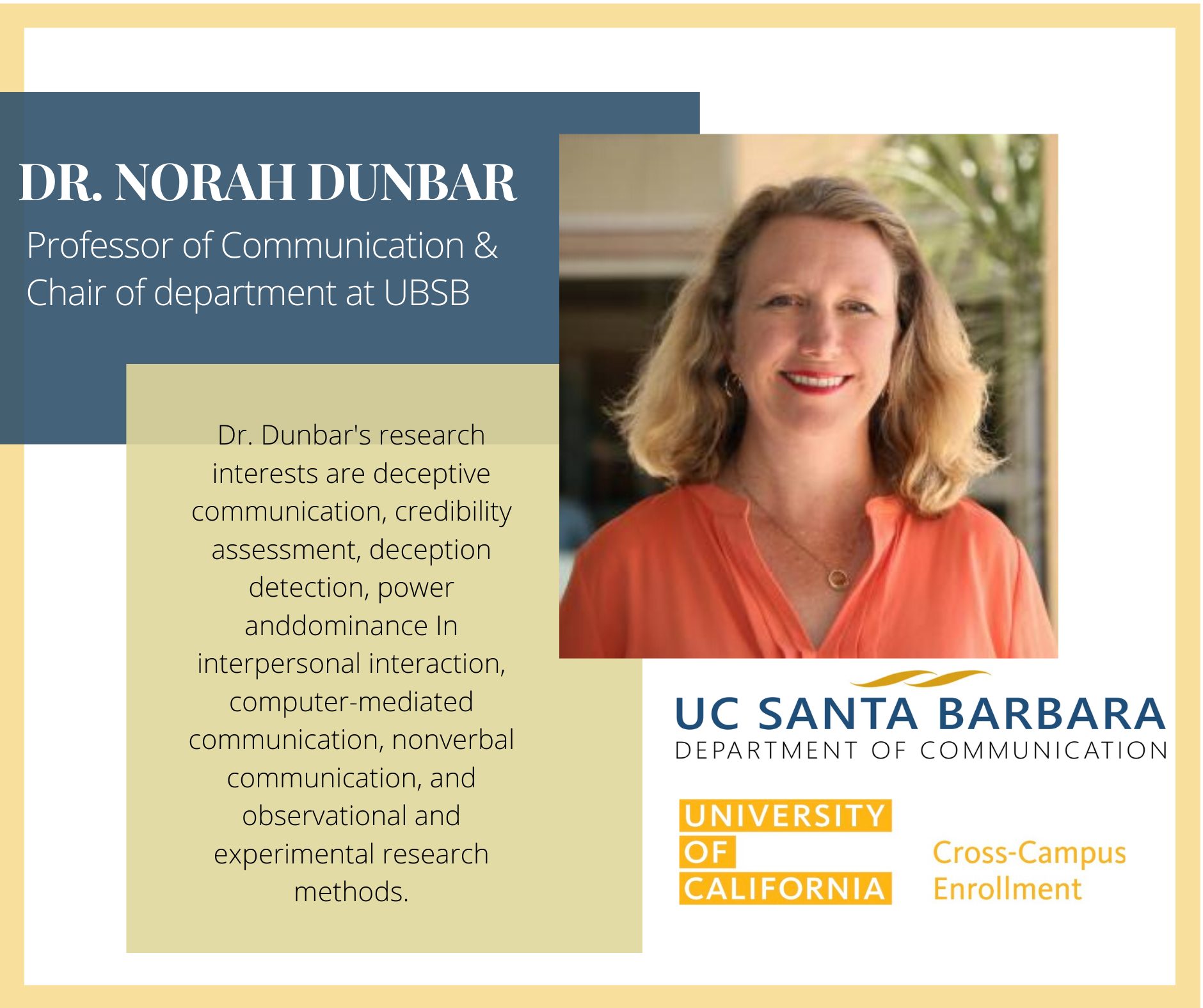UC Online Course Highlight: “Understanding and Detecting Human Deception”

By Adriana Conte
July 4, 2020 1:10 a.m.
Let’s be honest–it doesn’t feel good to be lied to. Being fooled is a frustrating feeling that people seek to avoid at all costs. Yet, dishonesty is extremely hard to detect, even among those closest to us. This leads many people to ask: is there any hope in accurately detecting deception?
Introducing “Understanding and Detecting Human Deception”–an online course that offers an interdisciplinary analysis of deception detection. This course is open to all UC students with the primary goal of comprehending the traditional and contemporary theories regarding the intersection of communication, cognition, and emotion in distinguishing truth from lies. This interdisciplinary approach allows for a stronger understanding of a multi-faced problem rooted in psychology, sociology, and communication. The skills and research attained in this class will be widely useful to students of any major both in their professional and personal lives.

This highly sought after course is taught by Dr. Norah Dunbar, a Professor of Communication at the University of California, Santa Barbara. Despite its predominant appeal to Comm Studies majors, UC Online permits students from any UC campus, regardless of major, to enroll for the fall quarter (space permitting). Dr. Dunbar has instructed this course at UCSB since 2014, however her experience extends far beyond this. Her extensive contributions within the field of deception research and role as the Chair of the Communication Department at UCSB further add to the educational appeal of this course. The online nature of this course allows Dr. Dunbar’s unparalleled knowledge and expertise in deception to be shared with students at other universities who do not have access to experts in this field of study.
The inspiration for this class arose from the recognition that deception is extremely hard to detect, yet being able to do so is very important in many different fields of study and careers. While there is no surefire list of cues, there are strategies and methods that can lead to more effective and accurate detection.
“I think as a community of scholars, we’ve realized that deception isn’t detected very well by nonverbal cues,” Dr. Dunbar says. “A lot of it is in the voice, in the verbal code, or what people say. It is more easily detectable through other means–linguistic cues, for example. And so we’ve really expanded what we’ve studied and not just looked at things such as facial expressions and body movements.”
By the end of this course, Dr. Dunbar hopes that her students will understand the complexity of deception detection and recognize that being able to tell a truthful statement from a lie is not as easy as we may believe.
“There is no guarantee or cue that you can really count on; that’s the number one thing I want students to come away from this class with,” Dr. Dunbar said. “Whether or not someone is lying and how to detect their lies depends on the context, how important the lie is, and who they are lying to–those things all change the kinds of cues that people give off.”
Students who are interested in this course are encouraged to enroll early, as space tends to fill fast. Lectures are pre-recorded and can be viewed at the student’s convenience, so long as they are keeping up with all course learning objectives. All assignments and quizzes will be posted on Canvas, the online platform through which all course content is delivered. Students are expected to complete all assignments by the due date and will be penalized for any late or missing work. The coursework and grade breakdown consists of weekly quizzes, discussion board posts, and a final paper. The quizzes and participation in discussion boards allow students the opportunity to deepen their understanding of the course materials and ensure they are staying on track. The final research paper will be a cumulation of learning objectives and will analyze familiar myths and misconceptions about deception that were studied throughout the quarter. See the course syllabus for more details about learning expectations and grading.
“Understanding and Detecting Human Deception” is a fascinating and widely relevant course that distinguishes deception from other forms of communication. By the end of this course, students will be able to synthesize the reasons humans are generally poor at sensing lies, as well as be equipped with the knowledge needed to specify the verbal and nonverbal cues and overall communication patterns in more accurate deception detection. From law enforcement to business to healthcare, this class will be very beneficial in numerous areas of life beyond the classroom.



